1. Samantha Stephens – The Hidden Witch
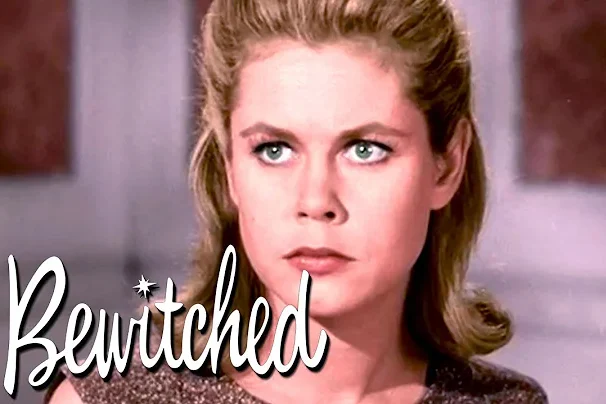
Samantha Stephens from Bewitched was a powerful witch who constantly had to hide her abilities to fit into suburban life and please her husband, Darrin. This character reflected the stereotype of women needing to suppress their strengths to maintain harmony in marriage. Samantha’s struggle symbolized the tension between female empowerment and traditional domestic expectations, a theme that was normalized for laughs but would be criticized today for promoting conformity over individuality.
2. Jeannie – The Magical Servant
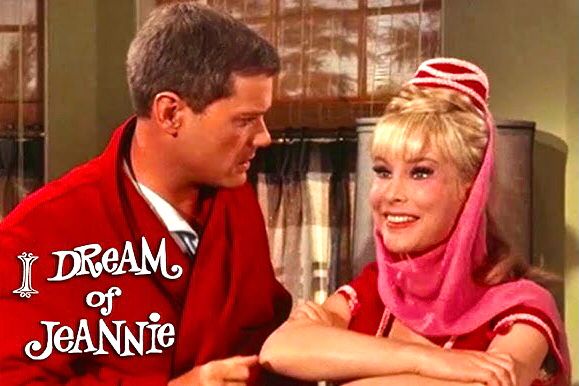
In I Dream of Jeannie, Jeannie was literally a genie bound to serve her master, Major Nelson. Her character was defined almost entirely by obedience, beauty, and her romantic devotion to him. This dynamic played into the trope of women as submissive helpers whose primary role was to please men. The show’s humor often came from Jeannie’s magical powers being used to cater to her master’s wishes, reinforcing outdated gender roles that wouldn’t be acceptable in modern TV.
3. Miss Jane Hathaway – The Uptight Spinster
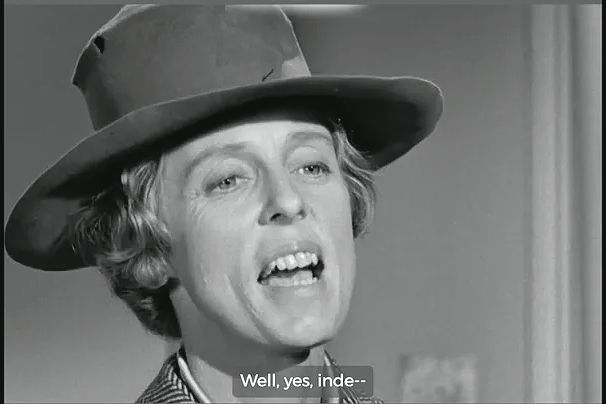
Miss Jane Hathaway from The Beverly Hillbillies was the quintessential “spinster” character. Her spinster status was a defining trait, frequently highlighted in episodes, because she was portrayed as desiring romance but often finding herself in awkward situations, particularly with her crush on Jethro. Her career success was often treated as a flaw rather than an achievement, reflecting the era’s stereotype that a woman’s worth was tied to marriage and youth. She was portrayed as uptight and overly serious, reinforcing the idea that single career women were odd or unfulfilled. This stereotype diminished the value of female independence and professional ambition, which today would be seen as empowering rather than laughable.
4. Ricky Ricardo – The Fiery Latin Husband
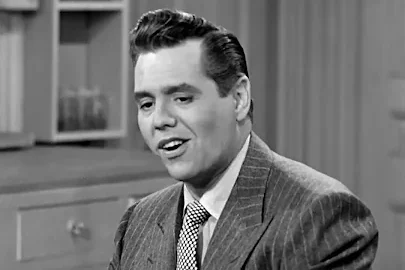
Ricky Ricardo from I Love Lucy was portrayed with a thick accent and a fiery temper, embodying the “loud, controlling Latin husband” stereotype. His character was often reduced to ethnic caricature, with humor derived from his passionate outbursts and cultural differences. This portrayal reinforced simplistic and exaggerated ideas about Latinx men, which modern audiences would find offensive and reductive.
5. Arnold – The Asian Stereotype
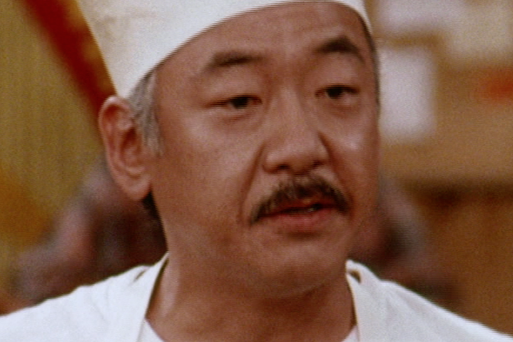
Arnold, whose full name is Matsuo “Arnold” Takahashi, was the Japanese-American owner of the iconic Arnold’s Drive‑In, serving as a karate-teaching, multilingual foil to the teenage gang and a friend to Fonzie. He rarely had storylines beyond being the Asian guy who dispensed quirky advice or performed martial arts for laughs. The show leaned heavily on tired tropes, reducing a whole culture to a punchline. In today’s TV landscape, this kind of one-dimensional representation would be called out for its lack of depth and authenticity.
6. Tattoo – The Cartoonish Sidekick
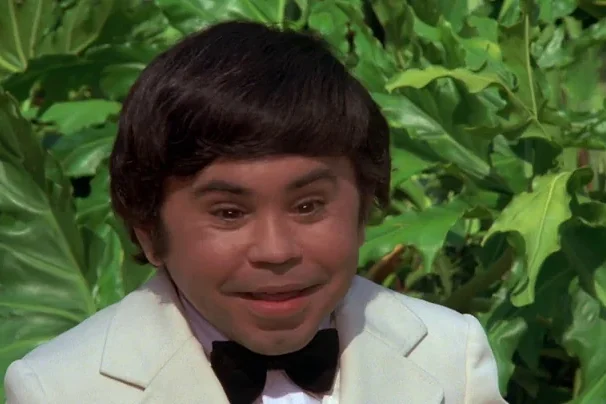
Tattoo from Fantasy Island is remembered for his catchphrase, “De plane! De plane!” but not much else. He was written as a sidekick with no real backstory or development, serving mostly to shout lines and provide comic relief. The character’s small stature and exaggerated mannerisms were played up for laughs, making him more of a caricature than a person. Modern audiences expect supporting characters to have their own arcs and dignity, something Tattoo was never given.
7. Sergeant Schultz – The Bumbling Nazi Guard
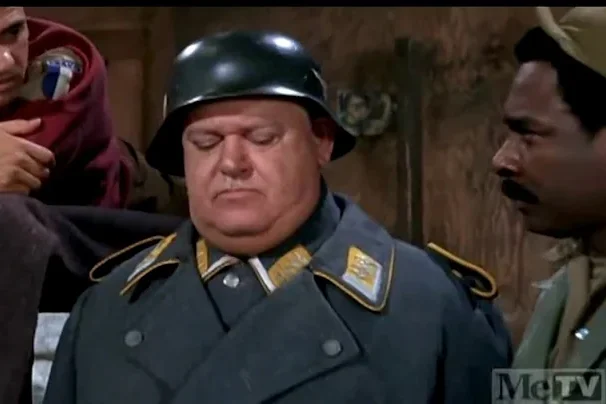
Sergeant Schultz from Hogan’s Heroes was a Nazi prison guard who was played purely for comic relief. Schultz is portrayed as lazy, clueless, and easily bribed; traits meant to lampoon, not humanize, Nazi ideology. His famous “I see nothing! I hear nothing! I know nothing!” signals willful ignorance rather than ideological adherence, making light of a very dark historical reality. By turning a Nazi officer into a lovable buffoon, the show sidestepped the gravity of his role and the horrors of the regime he represented. Today, this kind of portrayal would be seen as trivializing real suffering for the sake of a joke. Some commentators even note this catchphrase satirizes those who claim neutrality while ignoring atrocities
8. Colonel Klink – The Incompetent Nazi Officer
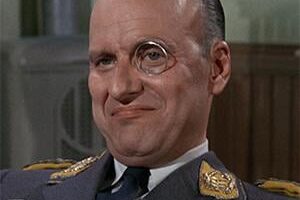
Colonel Wilhelm Klink, also from Hogan Heroes, is portrayed as vain, insecure, cowardly, and incompetent, a quintessential bureaucratic caricature, not a hardened ideologue. The show turns fascism into farce by showcasing Klink as a buffoon who is easily manipulated by Hogan, making him more object of ridicule than menace. While the intention was comedic, the result was a portrayal that downplayed the seriousness of history. In a modern context, this approach would likely be considered insensitive and out of touch.
9. Chico Rodriguez – The Ethnic Punchline
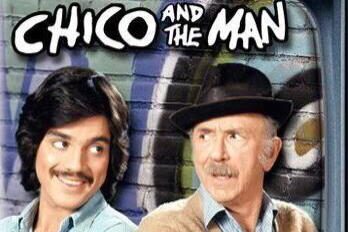
Chico Rodriguez from Chico and the Man was the show’s lead, but his character was often reduced to “spicy” one-liners and ethnic jokes. Instead of being a well-rounded person, Chico was written as a collection of stereotypes about Latino men; quick with a wisecrack, and always playing up his background for laughs. But the show missed the chance to explore his culture with any real depth, relying instead on surface-level humor that’s now widely recognized as problematic.
10. Latka Gravas – The Vague Foreigner
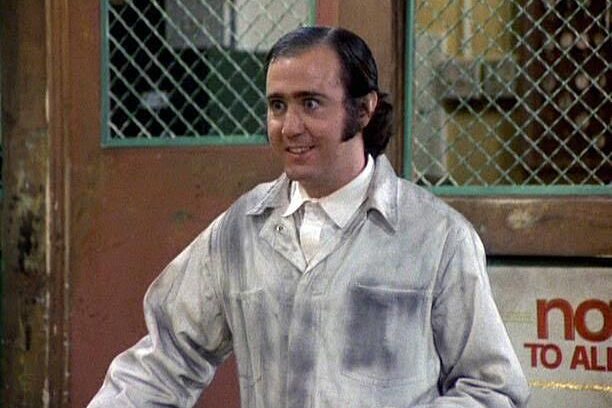
Latka Gravas from Taxi was the classic “foreign guy” with a bizarre, nonspecific accent and little backstory. His character was a patchwork of immigrant clichés, meant to be funny simply because he was different. For most of the series, Latka exists in a blank “old country.” Only later are details like his marriage to Simka and his mother somewhat explored, and even then often played for laughs. Latka’s quirks and misunderstandings were the punchline, rather than giving him a meaningful identity or history. Today, audiences expect immigrant characters to be portrayed with authenticity and respect, not just as comic relief.
11. The Professor – The Smug Genius
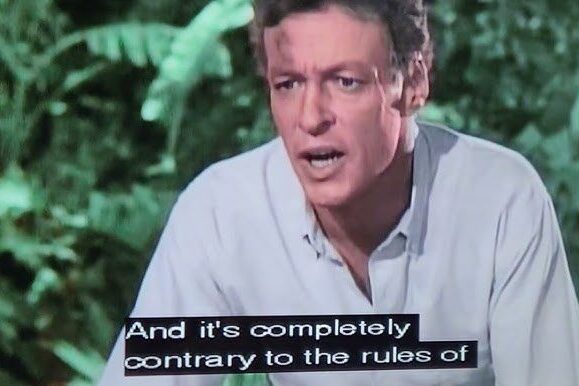
The Professor from Gilligan’s Island was the know-it-all male lead whose intelligence was always front and center. While he solved every problem, the women on the island were written as comic or decorative, rarely given the same respect for their ideas. This dynamic reinforced the stereotype that men were the thinkers and women the sidekicks, a trope that’s been widely challenged in modern storytelling.
12. Lisa Douglas – The Clueless Foreign Wife
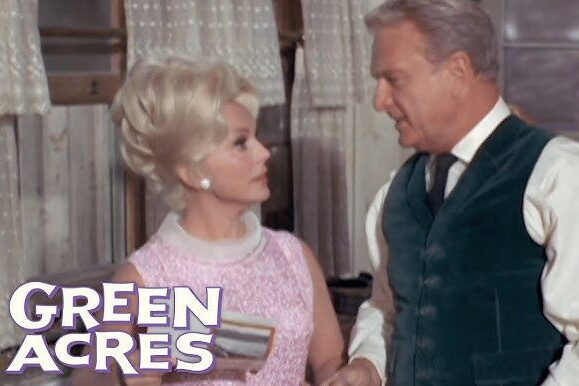
Lisa Douglas from Green Acres was the “clueless foreign wife,” her character built around mispronouncing English words and misunderstanding American customs. Lisa speaks with a pronounced Hungarian accent that consistently causes humorous mishearings and miscommunications. The accent and her charming malapropisms are central to her comedic role. Many jokes revolve around her failing to grasp rural American life, confusing farm chores, misusing language, or clashing culturally with Hooterville residents, rather than from any real exploration of her background. Lisa’s role was to be charmingly out of touch, which today would be seen as a missed opportunity for a richer, more nuanced portrayal.
This story 12 TV Characters from the ’60s and ’70s That Only Worked Because Stereotypes Were the Norm was first published on Daily FETCH


